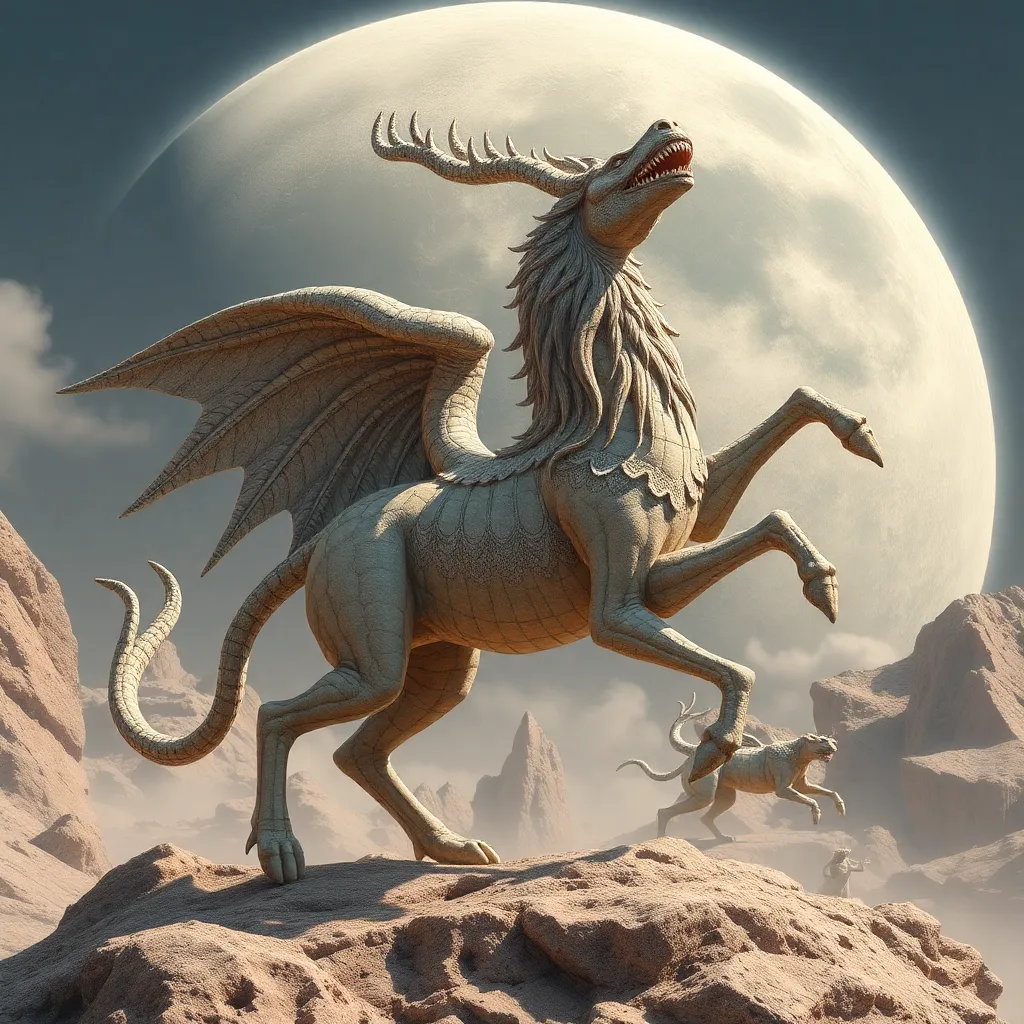The Role of Mythological Creatures in Greek Mythological Cosmology
I. Introduction
Greek mythology represents a collection of myths and legends that were integral to ancient Greek culture. These stories often feature gods, goddesses, heroes, and a variety of mythological creatures that embody the beliefs, values, and fears of the people.
Understanding Greek cosmology—the system that explains the origins and nature of the universe—allows us to appreciate how these mythological beings fit into the larger narrative of existence. The significance of mythological creatures extends beyond mere storytelling; they serve as symbolic representations of complex ideas and universal truths.
This article will explore the roles that mythological creatures play in Greek cosmology, analyzing their functions, interactions with humans, and cultural significance.
II. The Function of Mythological Creatures in Greek Cosmology
Mythological creatures in Greek mythology serve several critical functions within cosmological narratives:
- Symbolism of Creation and Destruction: Many creatures embody the duality of creation and destruction, representing the cyclical nature of life and the universe.
- Representation of Natural Forces and Phenomena: Creatures often symbolize natural elements, such as storms, oceans, and the earth itself, illustrating the Greeks’ understanding of their world.
- Role in the Narrative Structure of Myths: These creatures frequently act as catalysts in myths, propelling heroes on their quests and shaping the outcomes of their adventures.
III. Major Mythological Creatures and Their Roles
Greek mythology is populated with a variety of creatures, each with unique attributes and significance:
A. Titans
The Titans were primordial beings who preceded the Olympian gods. They were often associated with elemental forces and the cosmos itself, representing the ancient Greek understanding of the universe’s structure.
B. Olympian Gods and Goddesses
The Olympian deities, such as Zeus, Hera, and Poseidon, are central figures in Greek mythology. Each possesses distinct divine attributes, influencing various aspects of life and nature. Their interactions with mythological creatures often highlight the balance of power between gods and their creations.
C. Monsters
Monsters like the Minotaur, Medusa, and Cerberus symbolize chaos, danger, and the unknown. They serve as obstacles for heroes, embodying fears that must be confronted and overcome.
IV. The Interaction Between Humans and Mythological Creatures
The interactions between humans and mythological creatures are essential to understanding Greek mythology:
A. Heroes and Their Encounters with Creatures
Heroes such as Heracles and Perseus are renowned for their encounters with various creatures. These interactions often define their journeys and contribute to their heroic status.
B. Moral Lessons Derived from These Interactions
Encounters with creatures frequently convey moral lessons, teaching values such as bravery, intelligence, and humility. For instance, the slaying of the Hydra by Heracles demonstrates the importance of perseverance in the face of overwhelming odds.
C. The Role of Creatures as Guardians and Antagonists
Mythological creatures often serve as guardians of sacred spaces or treasures, while others act as antagonists that heroes must defeat. This duality emphasizes the complexity of their roles within mythology.
V. Mythological Creatures as Cultural Symbols
Mythological creatures have transcended their original narratives to become cultural symbols:
A. The Influence of Creatures on Art and Literature
From ancient pottery to Renaissance paintings, mythological creatures have inspired countless works of art and literature, symbolizing various themes and ideas.
B. The Role of These Creatures in Rituals and Religious Practices
Mythological creatures were integral to religious rituals and beliefs, often associated with specific deities or natural phenomena, reflecting the Greeks’ reverence for the divine.
C. Modern Interpretations and Representations in Popular Culture
Today, mythological creatures continue to influence modern storytelling, appearing in movies, books, and video games, often reinterpreted to fit contemporary narratives.
VI. The Evolution of Mythological Creatures in Greek Thought
The perception of mythological creatures evolved significantly over time:
A. Historical Context and Changing Perceptions
As Greek society progressed, the understanding of these creatures shifted, reflecting changing values and beliefs within the culture.
B. Influence of Geography and Local Traditions
Geographical factors and local traditions contributed to variations in the portrayal of mythological creatures, resulting in diverse interpretations across regions.
C. Integration of Foreign Mythological Elements
As the Greeks encountered other cultures, they incorporated foreign mythological elements, enriching their own pantheon and expanding the roles of their creatures.
VII. Comparative Analysis with Other Mythologies
When comparing Greek mythological creatures to those from other cultures, several interesting parallels and contrasts emerge:
A. Similarities and Differences with Creatures in Egyptian and Mesopotamian Mythologies
While Egyptian and Mesopotamian mythologies also feature a rich tapestry of creatures, the symbolic meanings and narrative roles often differ. For example, the Egyptian sphinx combines human and animal traits, much like the Greek Chimera, yet serves different functions in their respective mythologies.
B. The Universal Themes Represented by Mythological Creatures
Common themes such as chaos, creation, and the struggle between good and evil are prevalent across various mythologies, indicating shared human concerns and experiences.
C. The Impact of Cultural Exchange on Creature Mythology
Trade and conquest facilitated the exchange of mythological ideas, enriching the narratives and symbolism of creatures across cultures.
VIII. Conclusion
Mythological creatures play a vital role in Greek cosmology, serving as symbols of creation, destruction, and the natural world. Their interactions with gods and heroes provide moral lessons and contribute to the rich tapestry of Greek mythology.
The legacy of these creatures continues to permeate contemporary culture, reminding us of their enduring significance. Understanding these mythological beings offers valuable insights into the human experience, inviting us to explore the intricate connections between myth, culture, and the universe.




